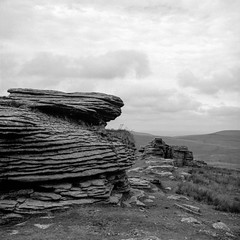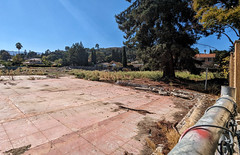Like many books that have taken their place in the canon of classic children’s literature, The Adventures of Pinocchio is at once darker and more pointed than most of us remember it. In the original novel by Italian writer Carlo Lorenzini (better known as C. Collodi), the newly-made marionette is so incensed by the talking cricket who tries to advise him that he murders it with a hammer; a horde of woodpeckers is sent by a kindly fairy to gouge away at Pinocchio’s nose when it grows long with lies. Our beloved puppet is ignorant, rude, and foolish, and the world around him is just as sadly ridiculous.
All of that strange, moody intent, along with a hundred and twenty years of derivations and commentary, is present in this thin plastic face with its wide, naive eyes and smiling mouth. All of that rich, mysterious wonder is doubled in this bathroom mirror. We may already be too far into this post-post-postmodern twenty-first century to believe that the camera is an instrument of truth, but there is still a frisson of—what is it? Fear? Delight?—when we see a stiff mask where a shifting human expression should be.
The thing about a lie is that, like a mask, it can only be animated by the truth that lies behind it.
Photo not foundPhoto not foundBlog photograph copyrighted to the photographer and used with permission by utata.org. All photographs used on utata.org are stored on flickr.com and are obtained via the flickr API. Text is copyrighted to the author, meerasethi and is used with permission by utata.org. Please see Show and Share Your Work








